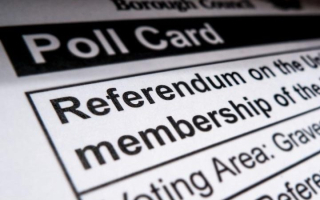Mary Beard's Blog, page 12
July 4, 2016
Pre-Chilcot -- and expertise
I am posting this well before we all have the chance to read the headlines of the Chilcot Report -- so that you know I am doing it 'blind' and un-influenced by the instant reaction.
Like everyone, I guess, I have resentment, anger, regret and sadness about the Iraq War. But over the years, I have come to puzzle most about the non-transmission of 'expertise' (term used advisedly, especially against the background of recent events and comments). My puzzle goes like this.
Just a week or so before the House of Commons vote, I went to a meeting for the 'university community' about the crisis in what was then called the Faculty of Oriental Studies. As I recall, it was hosted by Anne Campbell, the Labour MP at the time, and David Howarth, the Lib Dem candidate, and then (as again now) a University academic.
It was an eye-opener in many ways.
There were not many of the usual suspects there. In fact, there were quite a few be-suited scientsts, whom to start with I thought were probably as conservative as their suits suggested. But I was wrong.
As I recall it now, scientist after scientist insisted that the whole idea of Sadam having mobile labs, powering the WMD, in the desert was a fantasy. I remember them explaining that this was scientifically impossible (you could only imagine this being feasible if 24/7 electricity could be guaranteed, and it could not be, even with generators, in the middle of the desert). Whatever their politics, all these scientists said that what we were being told was simply wrong.
And they were right.
What exercises me now is the lack of communication between government and expertise. Here was a fairly unpoliticised group of expert senior scientists in a major university demolishing the 'evidence' for WMD in front of their local Labour MP (who resigned her junior job over the war).. how was it that that message did not get through to the powers at the top.
Your answer is as good as mine. But I would like to hear from Chilcot how the avenues of communication got so very blocked. I don't know if will discover that .. but it makes me think that we might have to learn to love 'the expert'.
July 1, 2016
You may now turn over your papers
I have a little Radio 4 documentary being broadcast next Wednesday at 11.00 am (it was to have been after the lunchtime news on Sunday, but 'events" as they say have extended the news). It is called, like this post, 'You may now turn over your papers', and is a light hearted look at the whole culture of exams, from the dreams many of us still have about them to the processes of marking. The aim, in the process, is to raise a few bigger questions about examinations and why we take them quite so much for granted. But please don't believe the headlines like "Mary Beard slams exam factories". Beard doesn't slam anything, and in fact she thinks that people who believe they have 'the secret' to what we should, or should not, about the nation's education and the role of exams within it, are usually talking through their hat, even if well-meaning -- or trying to make a political point.
The truth is that everyone we talked to who was operating our exam system on the ground, from teachers to representatives of the exam boards, seemed to be doing their best, with the best of intentions (there's noone out there, so far as we could see, who is on a campaign to make children's or students' lives a misery). The spirit of our programme is not so much one of criticism, but of wonderment: wonderment that we invest so much time and money and stress (one English exam board alone uses 25,000 markers a year to grade more than 7,000,000 individual papers) into a system whose point and purpose we havent communally thought about enough. We all get far too exercised with tinkering with GCSEs, up-grading or down grading coursework, and give far too little attention to what exams are actually for, and what on earth we think we are testing.
I dont want to give away all the best bits of the programme, and I hope you'll come away with some wry, hopefully thought-provoking, views of both school and university exams. We look at both, and we have fun peeking at the exam papers of 100 years ago, at some outrageous attempts at bribery of examiners, while I also interview a comedian who confesses to a bit of naughtiness around his own exams (and I in return fess up to some of my own), and take a trip up to the roof of King's College chapel (you'll have to listen to see why . . . ).
But, after my exploration of exam culture, I did come to the conclusion that we were trying to do TOO MUCH with school exams -- not only testing the pupils, but also the schools and in some cases the individual teachers. No wonder, as many have observed before, that so much effort goes into getting children over the D/C borderline at GCSE, when until now the major criterion of success for a school was the percentage of its pupils getting the magic 5 GSCEs (including Maths and English) at Grade A* to C. To put that another way, it is highly predictable that a safe B candidate will get rather less of teacher's efforts than the one who, with an extra push could just cross the boundary into a C. (That's not a criticism of teachers by the way, it's logic.)
And I also got the feeling that we still haven't got our heads around the full implications of mass examining on the scale we now do it. We are the first generation in the UK (and I am coralling Scotland in here, perhaps a bit unfairly) to examine more or less all children. Old O levels and even more A levels were the preserve of an elite minority, quite unlike today's GCSEs etc. Of course that is, in very obvious ways, a good thing, but the effects on what and how you can examine when you are trying to do it in those industrial quantities are not often taken on board. When people quite understandably complain about the rigid mark schemes and the apparently tick box culture embedded in some modern exams, they are probably forgetting that if you are dealing with tens of thousands of markers, it's a lot easier if you have some pretty clear guidelines written down.
My lingering thought, though, was about all those dreams that so many of us still have, even in our 60s, about exams -- about turning up to the wrong exam, in the wrong language, or in the wrong room. I think all the people we talked to bar one (and he worked for an exam board, so perhaps he had become innured) confessed to very much the same style of dream. The terror lasts for ever in our heads. But is it in the heads of ALL of us? I found myself wondering whether everyone (with the exception of our exam board man) really does dream in this way. Do people who in real life fail exams dream about the terror? Or do they forget all about it and get on with their lives? Is it an odd 'perk'/punishment of those of us who actually did well and have profited from them. When we say "everyone" dreams about exams, do we actually mean, as often, 'people like us'? Confessions, please.
June 28, 2016
How not to run a referendum
I have developed a general rule not to sign petitions or joint letters. I realise that this flies a bit in the face of the spirit of communal action, but my experience is that nothing much good has come from it, that I've sometimes had to spend days defending my reasons for signing, and that it is generally better to take the trouble to write down your own views than simply sign up to what has been written for you.
That said, I did sign the petition asking for a second referendum, even though there were several other reasons not to. I'm not just talking about the number of rogue votes, if such they were, but also about the democratic problem: if the people have cast their vote, why do you think you should ask to re-run the whole thing just because it didnt turn out the way you wanted? I hope my justification for that will become clear later.
But the truth is, I guess, that I signed not because I thought that there was any or much chance of achieving a re-run, even if that is desirable -- but because I thought that a few million votes on this campaign might put iron in the soul of some MPs who might be minded to try to sort the Brexit mess out
For mess it surely is.
When my college wants to make any change to its statutes, it demands that there is a two thirds majority of those present and voting. I am told that the same is true in some Trades Unions, and that a two thirds majority in both houses is required to change the US constitution (with similar rules in other legislatures). This might seem like a bit of built in conservatism, and may be it is. But it does something really important: that is, ensure that there is a real head of steam, and a real majority, behind big and often irrevocable changes.
On reflection, I wonder how any responsible government or administration could have got us into this pickle: what is more or less assumed to be a binding, once and for all, constitutional decision of the people, based on a small majority 52/48% on a turn out of not much more than 70%, when the representatives we democratically elected only last year are thought to be something like 75% of the other opinion, and when the different constituent parts of the Union have taken very different views. (And remember how different this is from the 1975 version, when parliament had already voted and we were being asked to accept or reject their decision -- presumably triggering a General Election if the vote had gone the other way.)
Can we all have been so dumb as to have sleep walked into this?
June 23, 2016
The long wait
As the daughter observed the other day, the referendum has become a bit like an exam. You've done all the revision you're going to do, and now you just want to go and actually do the paper. So, as I write this at 9.30 pm on referendum night, with the voting nearly done and dusted, it's a bit like that limbo time between doing the papers and the moment when the results are announced.
To be honest, I cant remember what I did after the other two referendums (or referenda) I lived through, and I have no recollection whatsoever of how I actually found out the result. For general elections, we have a long standing ritual, which involves some large hunks of nice cheese and a large bottle of nice whisky, and staying up till the moment when you more or less know what the result is bound to be (not usually beyond 3.00 am). There's a nicely comparative, historical side to it too (not unlike listening to the Archers, I fancy), as you compare the silly gadgets for displaying the predictions with all those you've seen before, or the eloquence of the presenters and of the exhausted politicians brought on to speak for the booming or failing parties. Why else do we get nostalgic about the swingometer--even though few of us could accurately describe what it actually was? And why else the rather jolly memories of the Portillo moment, which has mythic status far beyond the claiming of a single Tory scalp?
And, perhaps more important than any of that, there is a sense that the decision is reversible next time, and that -- important as some ideological and policy differences are between right and left -- an awful lot will go on exactly as before. You can go to bed, sorrows drowned, and think of living to fight another day.
This doesnt feel like that kind of occasion at all. That's partly because at this point it looks like you'll have to be awake at still at 4.00 am before there's any reliable indication. It's partly because we dont have the usual props of exit polls in marginal constituencies. But it is largely to do with the 'no going back' aspect to the whole thing, which must be one of the things that underlies the toxic turn (let's not forget that we have had the closest thing to a politcal assassination in this country for many years).
And that's why I guess, we're seeing, mad conspiracy theories -- like the idea that the establishment (whoever they may be) will be busy tampering with ballot papers, rubbing out the pencil crosses in the 'Leave' box and replacing them in 'Remain'. I'm usually a cynical sort of person, but not so paranoid that I think it remotely conceivable that there are battalions of secret agents in the the counting halls of Cambridge, or elsewhere, armed with erasers doing some dastardly alterations.
But the truth is that I am not even at home, and far from being armed with whisky and cheese, it's been wine and a Thai Green curry on hotel room service. And my suspicion is that I might be fast asleep before a single result comes.
June 22, 2016
'Thank you' goes a long way
A little while ago a friend of mine who works in an ostensibly desirable employment sector was giving a talk to undergraduates about how to break into her world. Towards the end, there was the usual question: "What's the one piece of advice, you would give us". It was a simple reply. "I know this might seem very old-fashioned," she said, "but always say 'thank you'". What she meant, as she explained to them and to me afterwards, was that she often got emails from people asking for career and other advice, she would regularly take some time and trouble to answer, and only in something like 50% of cases would she get an acknowledgement or a thank you. She always tried to remember those who had got back to her, and it didn't do them any harm, to say the least. Extrapolate from that.
I feel a bit the same. I get lots of questions, observations and enquiries about the ancient world, and about studying it at school or university. And I am very pleased to answer them -- partly because I still reckon that university teachers are basically public servants (despite the fact that the funding stream isnt as public as it once was) and so we have an obligation to answer the public's questions, partly because you have an even greater obligation to do that if you put yourself about on the tv, and partly because it is fun and I really value the feedback, both positive and constructively negative. So if you dont get a reply from me, give me a nudge, it will be because it accidentally got lost in the depths of the email inbox somewhere.
I dont draw the line at much. I do feel a little bit irritated when I get a query about (say) the date of Julius Caesar's assassination. The temptation to reply "tried Google?" is almost irresistible. I also feel slightly uneasy about answering queries from sixth-formers who have been "encouaged to reach out to an expert" (as they often put it) instead it seems of doing any reading from an actual book (I tend now to ask them what they have read and THEN engage with their queries). And I sometimes pull the plug at the third or fourth mini dissertation from someone with a bee in their bonnet about (this is invention, dont worry) 'moonmen at Chedworth Roman villa'. But most the comments are extremely good to get and the questions raised are worthwhile and spot on.
It does all take quite a time to pull off though.
I reckon that I average betwen one and two hours a day, every day, on the email in this way. And like my friend, I reckon that I have something in the order of a 50% acknowledgment rate. I'm not expecting much (just the reassurance that the email has been received is usually enough), though I have sometimes enjoyed some longer responses. One common question is about visiting Rome and Pompeii, including how you get to see some of the places we've shown in the tv programmes. And I have had some marvellous accounts when people return, telling me how it went, and what they managed or didn't manage to see. It really does seem that it's one of the good uses of the accessibility offered by email (and also Twitter).
But when I spend quarter an hour plus working out what is the most helpful thing to say in reply and I get sweet f* all back, I feel a bit used. And (sorry to say it) I feel occasionally that those who are encouraging pupils to "reach out to an expert" aren't absolutely always encouraging them to thank the expert when they have got the reply. And just occassionally, if I haven't heard within a week, I rather naughtily email to ask innocently if my reply has been received.
Is that reasonable, do you think? 'Thank you' does go a long way.
June 18, 2016
Citizenship for sale
When I was in a plane the other day, and was reading the in-flight magazine with more than usual diligence, I was surprised to see a several-page advert advertising 'citizenship by investment' in a variety of different Caribbean countries (it was from this company, but the same services are also available from this company and no doubt others). I'm probably a bit naive not to have known about this kind of thing before and my first reaction was the obvious one: there are thousands of people in the world who dont have effective citizenship of any nation, and here there was extra citizenship being advertised for a considerable amount of money to the rich, as an 'add-on' for those who already had a passport from somewhere else. There was something about it being in the in-flight magazine that somehow made it worse, as if stretching out your legs on some international flight, your thoughts might turn to a bit of citizenship-buying, rather than to the duty free.
But then I got to the nitty gritty. One thing was the price, and the differentials. Why I wondered did it require a $250,000 investment in St Kitt's 'Sugar Industry Diversification Foundation' for a fast track to a passport, but only a $200,000 investment into the 'National Development Fund' for a similar deal in Antigua. Was there something rather less desirable about Antigua? There didn't seem to be. And, in any case, there wasn't in either offer the need to set foot in the place to get the passport. (There's a 'citizenship-by-investment' comparison website here.)
But the general advantage you would get from your investment seemed pretty clear: in just a few months, you get visa-free travel to a large number of countries, including the EU. This is the St Kitt's list. Nationals of some countries are banned from these investment deals (if you are an Afghan citizen, don't get your hopes up), and there is due diligence on criminal records etc, but it's an easy way if you are from China or Russia or Sudan of getting a 'free' pass around the world.
A bit of Caribbean money-making I thought; not something 'we Europeans' would do.
But I was wrong. Austria, for example, has a similar scheme in place, if this website is correct. It costs a lot more (���3-10 million) and takes a bit longer (12-18 months), but you don't have to learn German -- and it gives you visa-free access to 171 countries.
The UK, of course, doesn't do exactly this, and certainly not with citizenship itself. But 'residence visas by investment' are advertised on the same website that features some of these Caribbean citizenship offers, as well as "Indefinite Leave to Remain' for a enhanced sum. As it says:
"For wealthy individuals one of the best options in order to qualify for leave to remain in United Kingdom is the Tier 1 Investor Visa.
The investor category is designed to allow wealthy individuals who make a substantial financial investment in the UK to obtain permission from the UK to enter as an investor under the Tier 1 category. The applicant must invest a minimum of GBP 2 million in the UK.
The Tier 1 Investor category has the shortest Investor Immigration application processing time amongst the G8 countries and has very objective entry criteria with a predictable outcome."
Here too, there doesnt seem too much hassle about qualifying if you have the cash:
"The applicant is not required to show business experience or the ability to speak English. Some nationals (China, Russia, Nigeria among them) are required to undertake a TB test before submitting their application. Investors are permitted to be gainfully employed under this visa or undertake a course of study in the UK."
And if you want to bring Mum and Dad, there's a route:
"The UK investor visa does not provide for dependent parents, who may be required to apply for leave to enter the UK under a different visa category, although currently this is very difficult. Alternatively, the parents and other extended family could consider obtaining an alternative citizenship and passport such as Antigua & Barbuda, so that they may travel freely into the UK for up to a six month period at any one time."
Now, maybe, it isn't all quite as simple as these glossy brochures and websites try to suggest; no doubt there are also a lot of scams out there promising a lot more than they can deliver; and I guess they could be the source of useful investment money for countries, ours included, that need it. So be careful not to leap to judgement, Beard.
All the same, the more I dug around in the details, the nastier that original taste in my mouth became. To them that hath, it shall be sold.
June 11, 2016
Why I have voted 'Remain' -- or 'STAY, UK' as I prefer to call it.
It wont be much of a surprise that I am in the 'Remain' camp, or 'Stay' as I prefer to call it. 'Stay' sounds much more urgent, welcoming and like real speech, than the rather pompous 'Remain' (and 'STAY, UK' would have been a nice rhyming brand). In fact, I have already voted that way; and, although I think there is some mechanism to accommodate postal voters' change of heart, for me it's a fait accompli.
It's not that I think everything is rosy in the EU garden. I have already moaned a bit about the democratic deficit and about how we ought to be concentrating on finding allies within the union to face that; getting rid of the party list system in elections might be a good first step. And I accept that (leaving aside the social legislation that we might have got round to, anyway, in our own time) the 'haves' in the UK have done better out of the EU than the 'have nots'; or rather they feel they have, which is just as important. People in universities, for example, celebrate the exchange of students and expertise, and the funding that comes with the European project, much more than people on what's left of the factory floor.
But that objection doesn't weigh very powerfully with me. After all, it���s part of the very definition of ���haves��� that they are the ones to do better out of whatever system they are in. And it is a pernicious fantasy to suggest that that would be different in a Brexit Britain; quite the reverse, I suspect.
My gut reasons for wanting to stay have ���remained��� the same through much of the last few months. Some of those are, unashamedly, emotional. Thanks to being part of a common enterprise for several decades now, I have come to feel European as well as British as well as English (the Romans, may I say, were very committed to that kind of 'multiple identity politics'). My intellectual world has expanded dramatically thanks to Europe (not wholly caused, but massively assisted, by the EU). And I value being part of a European Union that has the potential to face the big problems of the world, from migration to pollution, that nation states cannot possibly do effectively on their own. Whatever my frustrations with the organisation, turning my back on it (rather than working to improve it) seems as irresponsible as suggesting that Cambridge should opt out of the UK because some of us don���t like what the government is up to.
But over the campaign, my views have hardened for a variety of reasons. These are just some of them... I could give you plenty of others.
I accept that both sides have massaged figures and facts in their favour, but Brexit has been guilty of far worse whoppers and worse strategic silences. I simply cannot stomach the idea that the entirely erroneous figure of ��350 million per week can still be trotted out by the Brexit side, without any sense of shame, despite all the clear and authoritative statements that it is seriously untrue, And that���s not counting the silly little myth-oids about how the EU is making it illegal for the under-8s to blow up balloons, or is regulating against you buying big bunches of bananas. Just read this, taken from that great programme 'More or Less', if you want your eyes opened on the supposed European Cabbage directive.
There would, of course, be a funny side to these stories, if they weren���t so insidious.
And I am fed up too with not having any idea of what Brexit actually has in mind for post-Brexit Britain. Why do they imagine that we will be let back into some free trade zone without accepting the principle of free movement of labour? That, after all, is what Norway et al have to do in order to qualify for a free trade agreement. And what about these Europeans already here? I have heard tell that they will not be thrown out or asked to apply for visas. But what are the mechanisms going to be for deciding who qualifies?
And the final issue for me is the Brexit propaganda of little England and fear of foreigners. They repeatedly accuse ���Remain��� of peddling fear (largely in the economic sector, and sometimes I accept rather foolishly), but they themselves even more dangerously whip up the fear of our green and pleasant land being invaded by thousands of Turkish criminals. Ridiculous as that claim is in itself, we anyway have ��� like every member state ��� a veto on the entry of any new country. Remember De Gaulle���s ���Non���, folks? If Turkey were to come up formally for membership of the EU (and they are decades and decades off that), we could say 'Non' too, if we thought it was so very dangerous.
And their idea of sovereignty is one that would not pass muster in an A��� level ���Politics��� class. Sovereignty doesn���t mean the freedom to do what the hell you want. That freedom is always negotiated and to some extent curtailed by treaties and unions and bilateral agreements. NATO and the UN already curtail it, to the benefit of the whole world. Sovereignty exists within those honourable limits. As John Major said on the Today programme a few weeks ago, if you want sovereignty in the Brexit ('we want our country back') sense, try North Korea.
These arguments remind me of another, ostensibly very different, debate a few months ago. It was a great and fun occasion organised by Intelligence Squared (partly as a benefit gig for ���Classics for All���) ��� a debate between Boris Johnson and me on whether ancient Greece or ancient Rome was the ���better��� culture. You can watch it here.
It's maybe a bit unfair of me to say so, as Boris was such a good sport about the whole thing -- but what strikes me in retrospect is how similar some aspects of that stand-off were (even if obviously less serious) to what we are experiencing now. He was very funny, hugely engaging and a far more skilled orator than I was; you can't help being a bit impressed. But he was also extremely economical with the truth. His ���Greece��� came down just to one city at one period (fifth and fourth century BC Athens). Did any of his arguments about the Greek virtues of democracy and freedom apply to Sparta or Thebes? No they jolly well didn���t. And sometime he was plain wrong. You can tell about the power of human talent in Greece, he said, by looking at the Parthenon frieze: the gods and the humans on it are all the same size. No they are not. They take up the same size on the frieze but the gods are SITTING DOWN (if they chose to stand up, they���d be twice as big as the mortals). Not to mention that his eulogy of freedom of speech in classical Athens seemed to have forgotten what happened to Socrates.
My own contribution certainly bigged the Romans up, while lavishly celebrating the virtues they showed which are so easily, and so often, forgotten (such as a radically liberal definition of citizenship). But part of my case rested on the fact that the Romans -- like the EU, though I didn���t say or think it at the time -- were messy and flawed; but that they were also recognisably real and recognisably 'us', warts and all.
To my surprise, I won (just). I like to think that it was a combination of realism, practical politics and the facts triumphing at the final vote. And I hope that the same great British good sense (and the same British ability to sniff out a whopper) will come good on 23 June.
So, as I like to put it: please vote ���STAY, UK���.
Does the Queen no longer rate the humanities?
There have just been 12 new 'regius' chairs created in the UK, to mark the Queen's 90th birthday. So far as I can seem this hasn't meant more money for the university concerned, certainly not a nice nest egg of royal endowment. It is simply the honour of calling a chair a "royal" one. So why bother with it? Because, whatever you think of this bit of royalism, it is striking that all these chairs are in the sciences. There is not a single one in the humanities or social sciences. What message does that send out to those of us not working in hard or soft science?
Now, one always ought to hesitate a bit before calling foul play. This was done by a process of application. So it may be that the applications from the humanities were decidedly inferior. And it may well be fair to even out the distribution of regius chairs between universities and subject areas. The traditional sort of regius chair was a bauble for the oldest universities, and largely (but not entirely) concentrated in traditional humanities areas. I am sure that the government selection committee (including Onora O'Neill, one of the people in the world whose judgement I would trust) worked fairly and diligently.
But to end up with not a single new regius chair in the humanities (but a roster of materials, chemistry, precision medicine et al.) looks like a big official vote of no confidence in what we, in my neck of the woods, are doing. You would have thought they could have found at least one of 'our' group of subjects in some university in the country, worthy of the honour.
Part of the problem is presumably the terms of reference. One of the criteria was that the subject in the university should make:
"a direct and significant benefit to the UKs economic effectiveness and productivity at a regional or national scale".
Now, humanities departments do that all the time (to let the modesty slip for a bit, my recent book and tv programmes has actually generated a decent income for the UK economy, both directly and indirectly ), but both government and universities tend to think of economic effectiveness in terms of generating a new pharmaceutical which can be flogged at a very high price, not in terms of the hard and soft profits of a new humanities research project.
And the comments by the great and the good which accompany the announcement of the new chairs seem to correlate with a very narrow definition of 'benefit'. So George Osborne has this to say:
'I am passionate about promoting science and economic growth right across the country'.
and Jo Johnson this:
'We���ll continue to make sure pioneering science is recognised and supported to help improve the lives of millions across the country and beyond.'
If this is the government view, then it's less surprising that the arts and humanities didnt get a look in (the language has already classified them out.
Dont get me wrong. I dont want to undermine science research. In fact, the best scientists I know equally want to support research in the arts. But when I see a list like this, it makes me want to give up honestly -- rather than face the truth that those in government, speaking in the name of the Queen, think that the kind of research and teaching I do is a bauble not even worth a bauble.
June 9, 2016
Honouring a television goddess
I feel as if I have known Joan Bakewell for half a century or so. That is to say that when I was a little under 13 years old, I used occasionally to sneak watching her on the telly ��� talking about culture on Late Night Line-Up. She then seemed to me to be awesomely smart and impossibly glamorous.
Aged 12 or so, I would not have believed that I would later get to know this goddess. But indeed I did. That was mostly when she did a stint in the 1980s as one of Newnham���s external fellows, at a time of one of the most intensive bits of college politics (namely when we were discussing whether to ���go mixed��� ��� and I don���t think it is breaking any confidences to say that we were on the same side.
Even more I would not have believed what happened on Wednesday, when I had the fun of presenting her with the Sandford St Martin Trust ���Trustees Award���. The Trust has a wide remit, but each year it gives prizes to excellent programmes on tv and radio on religion and ethics ��� and to people who have made an especially significant contribution.
I had been booked to give Joan her prize. We made a good pairing I think. We���re both committed to giving ethics a good airing, but aren���t exactly paid up faith members.
It all happened in Lambeth Palace. And apart from doing the honours to Joan, it was great to see inside Hogwarts (as the Archbishop himself described it in his speech), and even more to see the famous remains of Archbishop Laud���s tortoise. This was perhaps even more famous to me from my teen-aged years than Baroness Bakewell herself (its survival had been drummed into us by a long suffering history teacher, who thought that the religious conflicts and reforms were perhaps less appealing than the extraordinary survival of this creature/pet).
And there were plenty of other awards. I particularly liked Mark Lawson���s speech announcing the winner in the radio category ('Objections at the Wedding'). It was a funny and elegant critique of those programmes (not only religious) which are based on the presenter���s personal ���journey��� and which exploit the personal engagement of the presenter in the subject under discussion. As he rightly said, some of the best programmes, tv or radio, are made by those who don���t have a personal investment, and are being old style analytical journalists.
All too true. But I still came away thinking of Joan, and of Newnham���s great track record of producing daring women.
June 3, 2016
Soldiers (and flags) on the Acropolis
I realise that it ill behoves anyone who is a citizen of a nation that still hosts Trooping the Colour even to appear to be a little bit critical of any other country's military displays. But a few days ago I was on the Acropolis in Athens and witnessed what was a slightly startling performance. A small party of soldiers marched across the site to the far East end, to raise the Greek flag from the flagpole and sing the national anthem (most of these soldiers looked like the newest recruits on national service -- not a single one, included the 'commanding officer', looked a day over 20). That's them above, and you can also see in the picture the progress of the restoration of the Parthenon.
OK, if you have a flag there, then someone has to hoist it. And if you still have compulsory National Service (preparing to fight whom?), then this is a fairly benign way of deploying some raw recruits. All the same, there was something decidedly disconcerting about seeing this little militaristic display at a place that is certainly a national monument but also an archaeological site. OK, I suppose there is sometimes quite a big RAF presence at Stonehenge . . . perhaps I just haven't seen it, or been there earlier enough in the morning.
But there is a back story to flags on the Acropolis, which makes a bit of a difference.
In 1941 Manolis Glezos, a young Greek man working then for the Red Cross, climbed up to the Acropolis and with a friend tore down the Nazi flag that had been flying there, under German occupation, and tore it down: an act that became symbolic of Greek resistance. Glezos was imprisoned, but survived, only to have what might euphemistically be called a "difficult career" as a left wing politician in later Greek politics (including a rather longer bout of imprisonment under the colonels). What is extraordinary is that this famous direct human link to opposition to the Nazis is, so far as I know, still alive. In fact, he was until recently a Syriza MEP.
I guess that that story gives a particular significance to flags on the Acropolis. It goes for me a little way to making what might otherwise be an unwelcome eruption of modern soldiers into ancient Greek culture seem a bit more OK.
Here, for the record, is the swastika being raised in 1941:
Mary Beard's Blog
- Mary Beard's profile
- 4107 followers

















